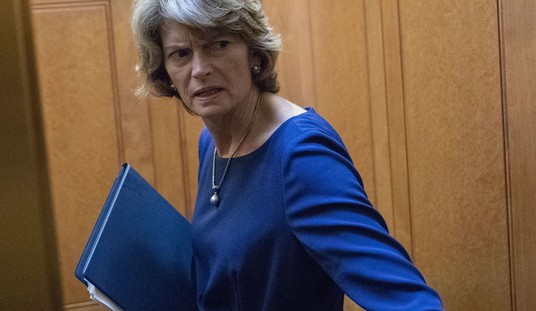Will Senate Democrats expend precious and limited political capital and filibuster the very qualified and capable SCOTUS nominee Neil Gorsuch? That’s the question of the day, and one not easily answered; primarily because the Democrats have been known to behave irrationally when desperate (think the entire ill-fated campaign and non-election of Hillary Clinton.)
But we’ll know their plan soon enough. The Senate Judiciary Committee will vote at 10 am this morning. And — according to Senate Majority Leader Mitch McConnell — the Senate will have confirmed new Supreme Court Justice Gorsuch by week’s end, even if the GOP has to push the red button and go nuclear to stop the filibuster (Jay Caruso explains that process in an informative piece from last night).
But what the Democrats ultimately decide to do is less interesting than the excuses they’re drumming up to do it. The most fascinating and tenacious is one Montana Sen. Jon Tester reiterated in his statement Sunday evening opposing Gorsuch: the influence of the ominous sounding “dark money” that might steal elections away from those who live in the light (or something).
“I am deeply concerned that dark money will continue to drown out the voices and votes of citizens…,” Tester said in his statement. It’s Citizens United all over again. In fact, there have been cries to investigate — unmask, if you will — the donors of the Judicial Crisis Network because they have been taking out ads to “Confirm Gorsuch” in red states where Trump won handily (making the Democrat Senators there vulnerable, so the thinking goes).
Six Democrat Senators wrote a letter imploring Gorsuch himself to help them uncover who is so “aggressively” backing him for the Supreme Court.
They are so compelling in their victimhood it’s easy (I guess) to forget that they enjoy the fruits of the Citizens United decision when it suits them. One Democrat-affiliated non-profit has recently unveiled a “seven-figure ad campaign” against Gorsuch, with the added chestnut of attacks against the Trump administration. When asked to reveal who was behind their spending, the group demurred as as The Washington Free Beacon recently reported:
The Constitutional Responsibility Project (CRP) was created by several leading figures in President Obama’s re-election campaign in March 2016 to boost the nomination of Washington D.C. appeals court Judge Merrick Garland…
…The CRP, a 501c4 group, has also echoed Democratic critiques on Gorsuch’s “troubling views on big money in politics.” The group, however, fails to disclose the identities of its donors behind the multi-million dollar effort to shoot down the nomination. CRP spokesman Josh Dorner, a vice president at liberal public affairs giant SKD Knickerbocker, did not return request for comment about whether CRP will disclose its donors.
Democrats’ hypocrisy on such matters is nothing new, of course. But it does raise an interesting question about what constitutes “dark money.” Because the image of cash exchanged in back rooms for nefarious ends is certainly the attempted theme here.
Which begs the question: are ad buys in favor of or against political appointees more or less dark than the recent allegations that one of the Podesta brothers (John was Hillary Clinton’s campaign manager) was a registered agent for a Russian bank? Are they more or less dark than former President Barack Obama using American taxpayer money to try to oust Israeli Prime Minister Benjamin Netanyahu in a 2015 election there? How about the relative darkness of ad buys compared to “U.S. taxpayer money … being used to back left-wing billionaire George Soros’ political meddling and similar efforts overseas.”
Perhaps it’s time — in light of the effort to stop the confirmation of, by most accounts, a very qualified and decent man such as Gorsuch — we redefine the term “dark money.”













Join the conversation as a VIP Member